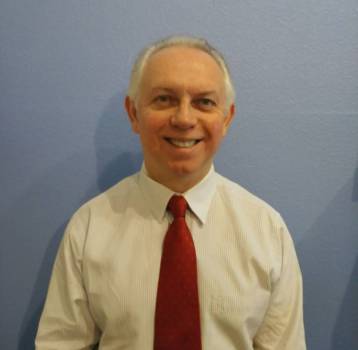While it’s hard to capture every story, we hope to periodically share in this space some of the major accomplishments or projects that are taking place. Members of the executive team will write about important topics that they feel NVC employees should be made aware of.
Let us know about the positive things your area is doing to help students or improve processes by contacting myself or NVC Marketing & Strategic Communications.
– Dr. Ric Baser, NVC President
Charles Hinkley, Ph.D
NVC Dean of Academic Success
At this time of the year, Northwest Vista College is negotiating dual credit agreements with some high schools and school districts. Dual credit agreements allow students to receive credit for a college course and a high school course simultaneously. In San Antonio, these courses save students a lot of money, because students do not have to pay tuition. Essentially, then, students can have several college courses college paid for and they only need approximately three more years to earn a bachelor’s degree, assuming the student attends college full time.
Teachers of dual credit classes must have the same credentials as our NVC faculty. For classes that transfer to four-year colleges and universities, teachers must have a master’s degree and at least 18 hours of credit in the field. High schools often host the classes, but some classes are taught on the NVC campus or online.
Dual credit classes are college courses which means they must meet appropriate levels of rigor, include college core objectives (e.g. critical thinking, communication, teamwork, personal responsibility, and social responsibility), and course learning outcomes—like knowing the constitution or stoichiometry. In brief, each course should teach college-level content and skills. At NVC, we interview and hire the teachers and let them know about their duties and how their courses will be evaluated.
At times, these reasonable expectations are met with conflicting interests. For one, high school students are minors which means they may be too young for some course content. When these issues arise, I have been told that the students and their parents must accept that course content is college level and thus meant for adults. That said, teachers must use good judgment and may need to deliver content delicately. Second, on some high school campuses, Advanced Placement (AP) students are in the same classroom as our dual credit students. AP classes are high school classes and dual credit classes are college classes. This may create challenges and points of negotiation because the teachers must teach an advanced high school class and a college class at the same time. For example, AP students use the high school textbook, but the dual credit students use a college textbook, or the teacher uses supplemental college readings and assignments.
As we finalize agreements, it is important to remember why these agreements are important. Since dual credit classes are free, socio-economically disadvantaged students begin earning a path toward a college degree. Moreover, it provides an opportunity for all dual credit students to begin their careers earlier at a lower cost. These agreements also provide a pipeline to one of the best community colleges in the nation—Northwest Vista College. And although there are more educational opportunities outside of college than ever, college courses are still the best way for most people to receive a good education. The reason for this is straightforward: no other organization allows for such easy access to so many subject matter experts in an environment of so many seekers of knowledge and career advancement.

 In every team and department at Northwest Vista College, there are always great stories to tell that show faculty and staff going above and beyond.
In every team and department at Northwest Vista College, there are always great stories to tell that show faculty and staff going above and beyond.